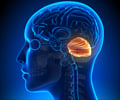Mayo Clinic researchers have identified novel risk factors for neurodegenerative diseases.

"We now understand that disease likely develops from gene variants that have modest effects on gene expression, and which are also found in healthy people. But some of the variants — elevating expression of some genes, reducing levels of others — combine to produce a perfect storm that leads to dysfunction," says lead investigator Nilufer Ertekin-Taner, M.D., Ph.D., a Mayo Clinic neurologist and neuroscientist.
"If we can identify the genes linked to a disease that are too active or too dormant, we might be able to define new drug targets and therapies," she says. "That could be the case for both neurodegenerative disease as well as disease in general."
Dr. Ertekin-Taner says no other lab has performed the extent of brain gene expression study conducted at Mayo Clinic's Florida campus. "The novelty, and the usefulness, of our study is the sheer number of brain samples that we looked at and the way in which we analyzed them. These results demonstrate the significant contribution of genetic factors that alter brain gene expression and increase risk of disease," she says.
This form of data analysis measures gene expression levels by quantifying the amount of RNA produced in tissue and scans the genome of patients to identify genetic variants that associate with these levels.
Mayo researchers measured the level of 24,526 transcripts (messenger RNA) for 18,401 genes using cerebellar autopsy tissue from 197 Alzheimer's disease patients and from 177 patients with other forms of neurodegeneration. The researchers then validated the results by examining the temporal cortex from 202 Alzheimer's disease patients and from 197 with other pathologies. The difference between these samples is that while the temporal cortex is affected by Alzheimer's disease, the cerebellum is relatively spared.
Advertisement
They identified novel expression "hits" for genetic risk markers of diseases that included progressive supranuclear palsy, and Paget's disease, and confirmed other known associations for ulcerative colitis, and type 1 diabetes.
Advertisement
They then compared their eGWAS to GWAS data on Alzheimer's disease, conducted by the federally funded Alzheimer's Disease Genetics Consortium, to test whether some of the risk genes already identified promote disease through altered expression.
"We found that a number of genes already linked to Alzheimer's disease do, in fact, have altered gene expression, but we also discovered that many of the variants in what we call the gray zone of the GWAS — genes whose contribution to Alzheimer's disease was uncertain — were also influencing brain expression levels," Dr. Ertekin-Taner says. "That offers us new candidate risk genes to explore.
"This is a powerful approach to understanding disease," she says. "It can find new genes that contribute to risk, as well as new genetic pathways, and can also help us understand the function for a large number of genes and other molecular regulators in the genome that are implicated in very important diseases."
Source-Eurekalert










